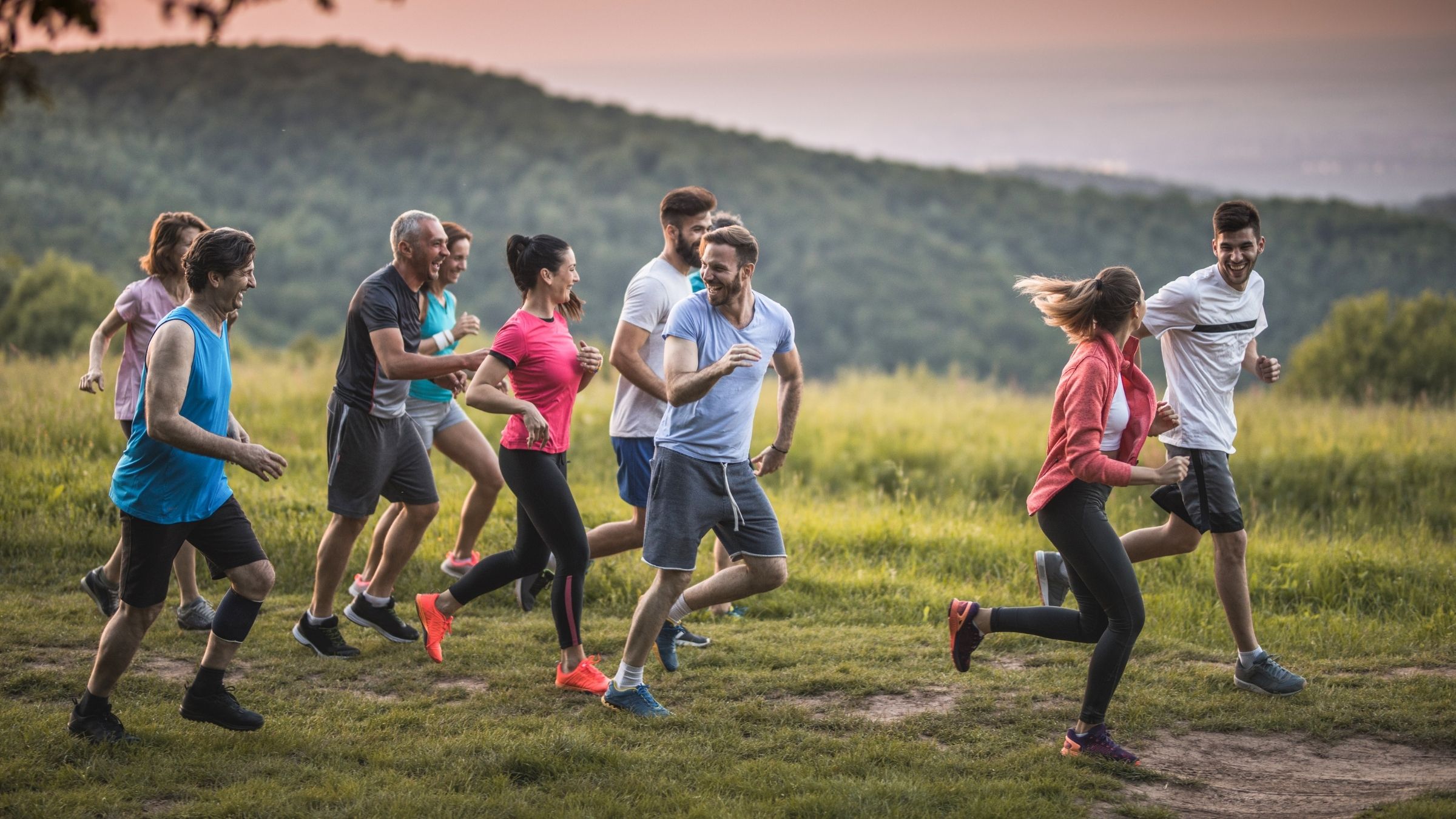Commentary: Are You Having Fun?

(Photo: Getty Images)
A month or so ago I did a local, oddly competitive, cross-country race for no reason other than that I could bike there from my house and I thought it’d jump start my motivation—which has been lacking.
The race itself was all the things racing is—hard, stupid, painful, fun—and I was slower than I’ve been before but not nearly as slow as I feared, and so I considered it a successful Sunday morning. But afterwards, as I stumbled around the picnic area in the classic hands on hips, hands on knees, hands on head cycle of athletes post-finish lines everywhere, I looked around and realized: I had been slower but I’d finished in the same place I had three years ago, I’d been slower but it was the same women around me as always, I’d gotten slower and out of shape but so had everyone else.
I looked around and realized I wasn’t the only one with a few extra pounds and little less oomph.
Certainly there are some people who have come through COVID stronger, fitter, faster. Most of them are 20-something pros who just needed a little more time to develop, who may have done well anyway—it simply seemed like an overnight success in the midst of a pandemic. But for most of us, for the rest of us, we’re tired.
I’m not the first person to say this. There’s been quite a bit written about burnout and the psychological fatigue of the last two years, about how our relationship with these hobbies we push ourselves to succeed at has changed while the world changed. What does success even look like now?
Yes, I know you’re a triathlete, so I know at least half of you are muttering: Success looks like winning, or PR’ing, or beating myself. And that’s not not true. It’s also simple—it’s not easy, but it is simple—which makes it appealing. It’s nice when success is so clearly defined, since it’s not so clearly defined everywhere else in life.
It doesn’t take a psychology degree to understand that so much of what pushes largely white collar athletes to physical extremes has to do with a deep evolutionary need to seek an adrenaline rush, a thrill, to find the simplicity of clear wins and losses that’s been eroded by the complicated machinations of much of the white collar world. Triathlon, running, biking, throwing heavy things around a gym, going up and down a hill hundreds of times gives us a sharper meaning and focus, a reason we might otherwise be lacking. It’s also superfluous. If you had to hunter-gather all day, you wouldn’t be worried about how fast you could run a marathon. Our sports are an invention of the modern world.
And so it’s no wonder that so many of us lost that rush, that extra gear, in the last year. It wasn’t a thing that needed chasing while we had so many other things to chase. There’s probably a reason the vernacular around our sport seems to be shifting from the language of “suffering” to one of “fun.” It’s time now to just have fun again.
This past weekend my Instagram feed was flooded with friends posting that the New York Marathon had been their slowest marathon ever—we’re all out of shape—but it was also their most fun. That it felt like a renewal (finally), a comeback. Twitter was blowing up on Saturday with the excitement of watching double run duels at Ironman Florida and imagining that we too could push ourselves to be our best again. And, on Sunday, for the first time in 29 months I lined back up for the weirdest silliest funnest race usually on my calendar—the Dipsea, a 110-year-old trail race that’s handicapped by age and gender, and allows shortcuts (if you know where they are).
Spoiler: I didn’t have some fairytale performance at the Dipsea. I didn’t suddenly magically get in amazing shape and surprise myself. It was hard and stupid and painful and fun, and mostly OK. But there were flashes, moments when I was hurtling downhill, that I felt like me again, like the happiest and best version of myself.
So many of us have been saying to each other that we lack motivation, that we’re out of shape, that it sucks and we’re tired—but that’s not quite right. Saying we lack motivation implies that there’s some goal we just can’t motivate ourselves to get out the door for. What we lack are the right goals.
For me, I still can’t quite imagine banging my head against the door of triathlon over the winter. Not yet. I can, however, imagine a spring marathon or a 50K or a Crossfit winter. I can imagine training camp in January with friends and Masters swim workouts. I can almost picture the glimpse of an Ironman next fall, maybe, and I made up my own California challenge for next summer that no one cares about but me.
Even in the strictest, most traditional definitions of success, you don’t achieve them immediately. You have to take that first run first. You have to do something, anything, to start, you have to find the right reason for you, and you have to do it your way. You have to have some fun.
What sounds like fun?